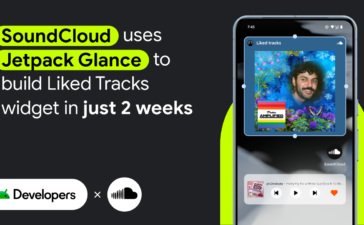Posted by Robbie McLachlan, Developer Marketing
In our latest film for #WeArePlay, which celebrates the people behind apps and games, we meet Michael and Shalom – a mother and son duo driven by a passion for sharing and teaching African languages. Discover how their app, Nkenne, goes beyond language learning—serving as a powerful tool for preserving cultural heritage and reconnecting people with their African language and culture.
What inspired you to create Nkenne?
Michael: Nkenne which means “of the mother,” really came from a personal place. I wanted to learn Igbo, my native language from Nigeria, but there weren’t many resources out there that made it easy or accessible. My mom, Shalom, raised me in the U.S., and while I grew up hearing bits of Igbo, there wasn’t enough time or structure for me to fully learn it. During the pandemic, when everything paused, I realized how much I wanted to connect with my heritage, and that’s when the idea sparked. We realized that not just Igbo, but many African languages were becoming less common, even among those who speak them. So, we saw this as an opportunity to preserve these languages and help others reconnect with their roots.

You’ve mentioned the goal of preserving African languages. How does Nkenne contribute to their preservation?
Shalom: African languages are considered low-resource because they don’t have as much digital content, formal documentation, or readily available learning tools. With Nkenne, we’re helping to change that. We’re not just teaching the languages, we’re documenting them, building lessons, and creating a resource for future generations. Many people in Nigeria, for example, don’t speak their native languages anymore. By creating Nkenne, we’re essentially building a digital library of African languages.
How does Nkenne integrate both language learning and cultural education? Why is it important to teach both?
Michael: Understanding the cultural meaning behind a language makes learning richer. It’s not just vocabulary—it’s about connecting people with the culture behind it. We include blogs, podcasts, and lessons that dive into the traditions and customs tied to the language, so people understand not just the words, but the history and meaning behind them.
Shalom: Yes, learning a language without the cultural context leaves gaps. For instance, in Nigeria, using your left hand to hand someone an item is considered rude— we teach these cultural nuances in the app to help the user truly grasp the culture.

What’s next for Nkenne?
Michael: We’re focused on expanding our language offerings to 30 by the end of 2025, including more African languages and Creole dialects from around the world. We’re also working on enhancing our AI capabilities for language translation.
Shalom: We’re also deepening the community experience, adding more social features where users can connect, share, and practice together. It’s about building not just a language-learning platform, but a space where people from the diaspora and beyond can truly connect with their heritage.
Discover more global #WeArePlay stories and share your favorites.
How useful did you find this blog post?
★ ★ ★ ★ ★









